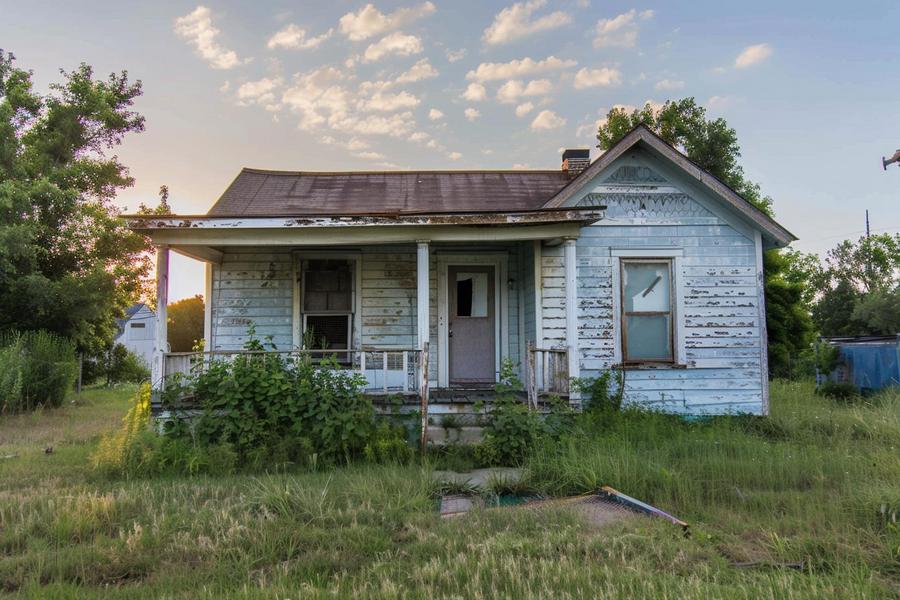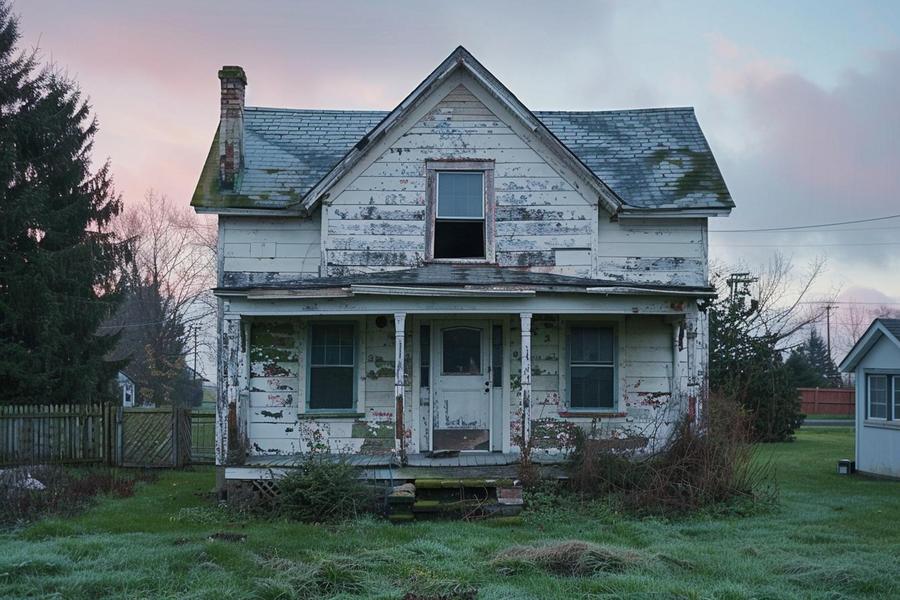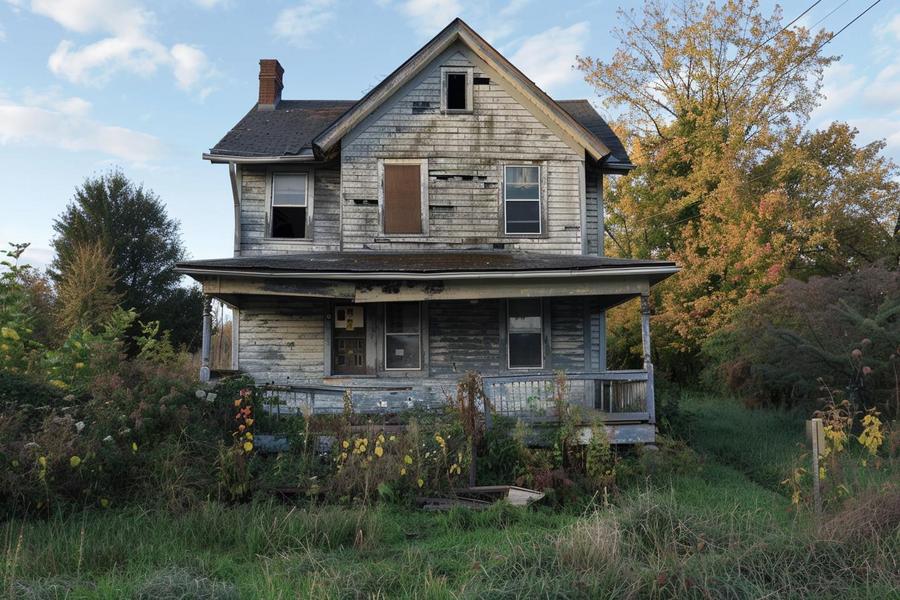Selling a house in poor condition in Richmond? You’re not alone. I’ve seen plenty of homeowners stuck with outdated or damaged homes who still need a quick, fair sale. Here’s the thing—with the right approach, you can actually sell without dumping money into major repairs. Let me walk you through what “poor condition” really means, what’s worth fixing (and what isn’t), how to price it right, and how to find buyers who won’t run away screaming.
TL;DR:
- Not all repairs add value—focus on quick, low-cost fixes.
- Cash buyers purchase as-is, closing in days instead of months.
- As-is sales save on repairs but may get lower offers; full disclosure is required.
- Price using comparable sales minus repair costs.
- Market the home’s potential with clear photos, tours, and honest descriptions.

What Does “Selling a House in Poor Condition” Mean?
When real estate agents say “poor condition,” they’re talking about homes with visible wear or damage. Think peeling paint, missing shingles, that 1970s bathroom that time forgot, or maybe structural issues that make you nervous. Buyers walking through know they’ll need to invest both time and money.
A lot of people assume nobody wants these houses. That’s just not true. Investors and weekend warriors with HGTV dreams actively hunt for these properties—they see renovation potential where others see headaches. And here’s something that might surprise you: those expensive upgrades like granite countertops or a complete kitchen overhaul? They rarely pay for themselves when you’re trying to sell quickly. Sometimes keeping your wallet closed makes more sense.
Is It Worth Making Repairs Before Selling?
This is where things get tricky. Some repairs are worth it; most aren’t.
Those little fixes—tightening a wobbly door handle, patching nail holes, replacing burnt-out bulbs—can make a surprising difference for almost no money. But a new roof? That $15,000 you spend probably won’t come back to you at closing. I’d suggest talking to a local agent who knows your neighborhood. They can usually spot which improvements actually matter to buyers in your area.
Quick wins that might be worth considering:
- Replace broken fixtures
- Fix small leaks
- Clean and declutter
- Touch up paint
- Improve curb appeal with yard work
How Can I Sell My House Fast for Cash?
Cash sales can be a lifesaver when you need speed over everything else. If you’re looking at selling a house fast in Virginia, this route lets you skip the repairs, the endless showings, and the nail-biting wait for buyer financing.
The process is pretty straightforward:
- Find reputable cash buyers or investors.
- Schedule a quick walkthrough.
- Receive and review a fair as-is offer.
- Close in as little as 7–14 days.

What Are the Advantages and Disadvantages of Selling a House As-Is?
Pros
- No repair costs or delays
- Fast closings
- Appeals to investors and flippers
- Reduced stress from showings
Cons
- Lower sale price
- Smaller buyer pool
- Mandatory disclosure of known issues

Who Buys Houses in Poor Condition?
Your buyer pool looks different than it would for a move-in-ready home. You’re likely dealing with investors, house flippers, or bargain hunters who see dollar signs in your fixer-upper. In markets like sell a fixer-upper quickly in Norfolk, these folks often come with cash and can close fast. They’re perfect if you value speed over squeezing out every last dollar.
How to Price a House in Poor Condition?
Pricing requires some homework and honest math. Start by looking at what similar as-is properties have sold for recently in your neighborhood. Then comes the reality check—subtract those repair estimates.
Let me give you a real example: Say comparable as-is homes are selling around $200,000. Your contractor quotes $40,000 for repairs. Factor in about $5,000 for closing costs, and remember the buyer needs to make something for their trouble—let’s say $15,000. Your realistic offer price? Probably around $140,000 ($200,000 – $40,000 – $5,000 – $15,000).
Now, in hot markets like sell your home as-is in Virginia Beach, aggressive pricing might actually spark a bidding war, even for a house that needs work. It seems counterintuitive, but I’ve seen it happen.
What Are the Legal Considerations When Selling a Home As-Is?
Here’s where you can’t cut corners. You have to disclose everything you know is wrong—that foundation crack, the leak in the basement, the electrical panel from the Carter administration. “As-is” doesn’t mean “buyer beware” anymore. It just means the buyer accepts the current condition once they know about it. Some states still require certain things to work (like heat in winter), so check your local requirements. For more on keeping things above board, HomeLight’s blog on editorial integrity has some good pointers.
How to Attract Buyers for a Home in Poor Condition?
Don’t hide the flaws—embrace the potential. Maybe your kitchen is dated, but that corner lot is gold. Perhaps the house needs work, but it’s in a great school district. Take clear photos in good light (yes, even of the not-so-pretty parts), and think about offering virtual tours. An open house can work wonders too—sometimes people need to stand in a space to imagine what it could become.
FAQs
Can I sell without making any repairs?
Absolutely. Plenty of investors prefer buying as-is because they have their own contractors and vision. Just be realistic about pricing and upfront about problems—nobody likes surprises at the inspection.
How fast can I close with a cash buyer?
I’ve seen deals close in a week when everything lines up. Two weeks is more typical, assuming the title is clean and you’ve got your paperwork together.
Will I get market value selling as-is?
Probably not—but that’s the trade-off. You’re exchanging some money for convenience and certainty. In a seller’s market, though, the gap might be smaller than you’d expect.
How do I find the right buyer?
Look for established investors or home buying companies with solid reviews and a local presence. In areas like selling a distressed property in Chesapeake, specialists who know the local market can often handle these transactions without the usual headaches.
What’s the best way to prepare for an as-is sale?
- Gather repair estimates
- Clean and declutter
- Highlight positive features
- Be honest in disclosures
- Set a realistic price
- Have documents ready for closing





